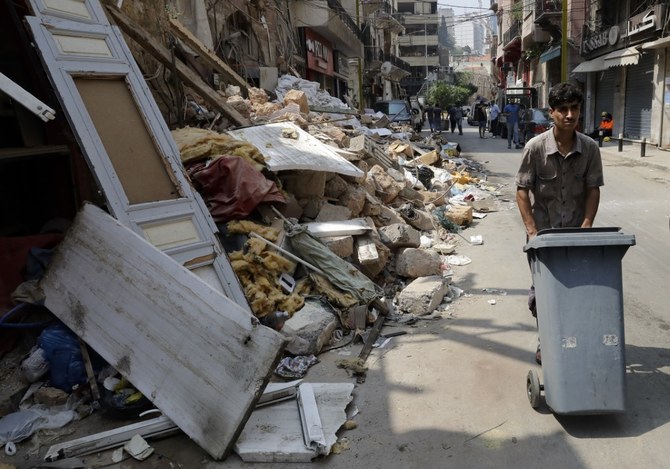
by NAJIA HOUSSARI — arabnews.com — BEIRUT: Former Lebanese prime minister Saad Hariri has put himself forward as a potential leader in a bid to break the country’s growing political deadlock. He also began political consultations with other parties in order to revive the possibility of a successful French rescue plan on Monday. After a meeting with President Michel Aoun in the Presidential Palace, Hariri said: “We have no time to waste on political polemics. If someone wants to change the concept of the French initiative, let them bear the responsibility.” The French plan, launched by President Emmanuel Macron on Sept. 1 to help Lebanon cope with its crises, failed after Hezbollah and the Amal Movement demanded ownership of the finance portfolio and the presence of Shiite ministers in a new government. Hariri said that the government should be “formed of specialists who do not belong to parties and who will undertake specific reforms within a specific timetable, which does not exceed a few months.”
Lebanon is scheduled to begin negotiations with Israel on Wednesday to demarcate maritime borders amid an absence of government in the country, which is enduring one of its worst economic and financial crises to date. President Aoun said he “wants to form a new government as soon as possible, because the situation no longer tolerates further deterioration.” Aoun also urged “the necessity of adhering to the French initiative.” In a statement, Hariri said the consultations, which also included meetings with Parliament Speaker Nabih Berri and other former prime ministers, were designed to “float Macron’s initiative.” He added that the French plan “is the only and last opportunity to stop the collapse and rebuild what was destroyed by the Beirut Port explosion.”











